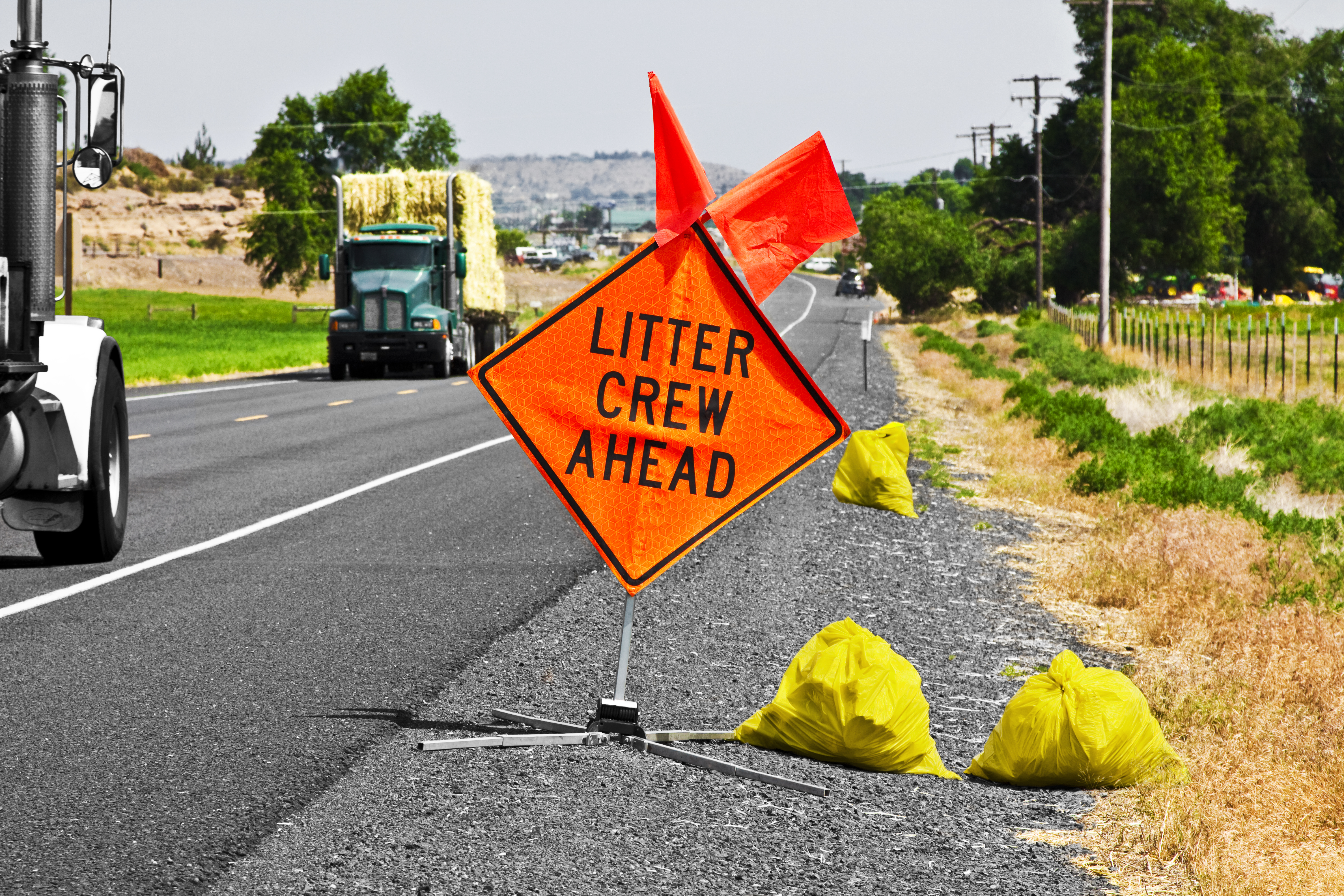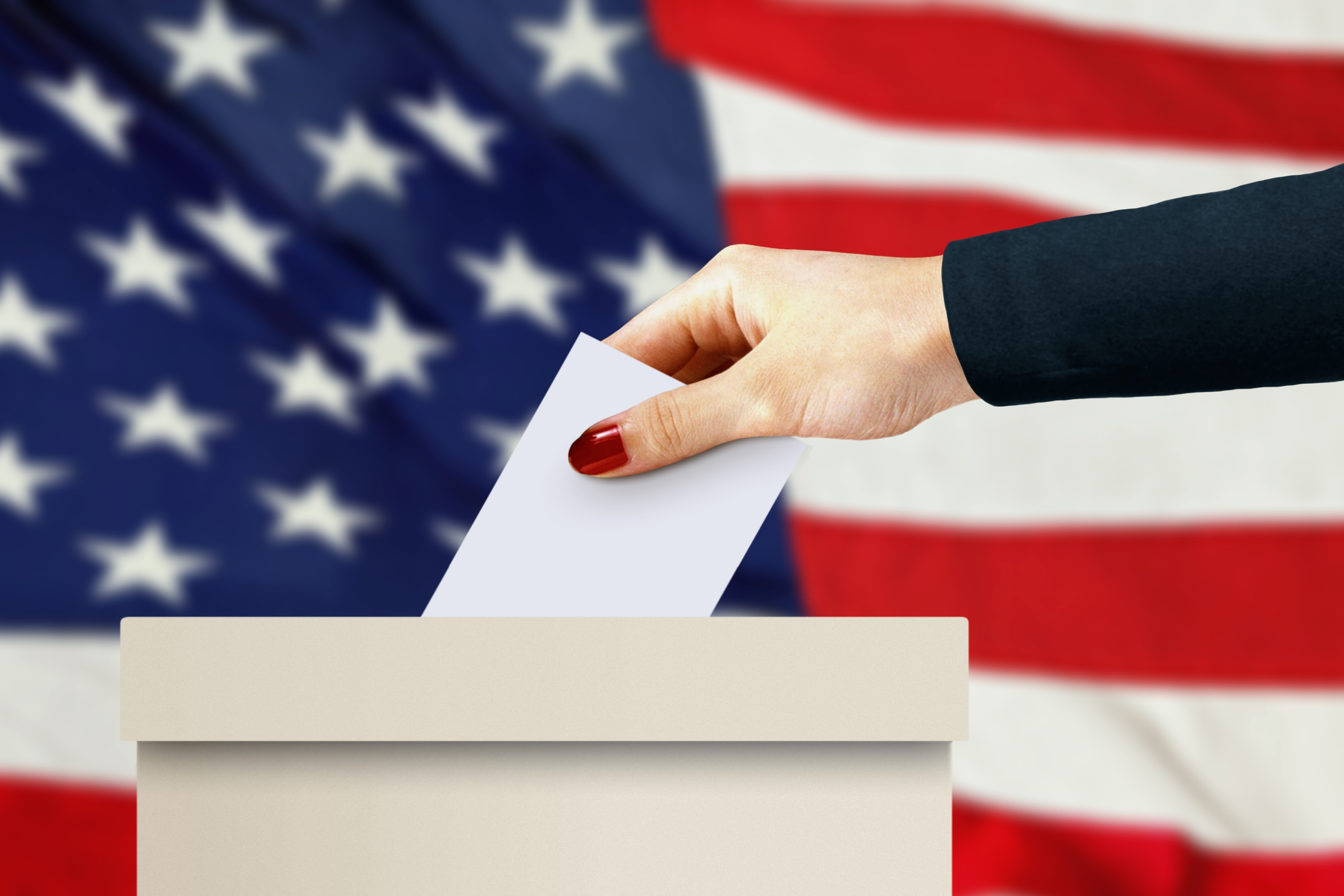Many people choose not to vote because they feel like they do not understand the laws being proposed. We went through the Colorado blue book analysis and pulled out just the important parts. We want to give you all the necessary information in its most stripped-down form.
The following text was adapted from the 2016 Colorado Blue Book. The full document can be read here. We also recommend that you refer to the blue book for judge recommendations, as that is not included in this guide.
Amendment T: No Exception to Involuntary Servitude Prohibition

What: Amendment T proposes removing the slavery exception from section II in amendment 26 of the Colorado Constitution, (an amendment similar to the 13th Amendment in the U.S. constitution, abolishing slavery and involuntary servitude). As it currently stands the law says that “Slavery and involuntary servitude are prohibited except as a punishment for a crime that a person has been found guilty of.” The new amendment proposes removing the language (as shown below) that allows the exception:
Section 26. Slavery prohibited. There shall never be in this state either slavery or involuntary servitude. except as a punishment for crime, whereof the party shall have been duly convicted.
Pros: The purpose of Amendment T is to remove the language that represents a time in the past where certain Americans were not seen as human beings. Colorado would join roughly half of the country in having no language allowing for slavery under any circumstance. Supporters of the bill say that the changes in language will not effect the work programs and community services that prisoners are engaged in. Here is more information about Vermont’s Correctional Industries. Vermont is the only state to never include the clause when they ratified their state constitution to abolish slavery.
Cons: The primary concern is that the work programs and community service that prisoners are sentenced to will become unconstitutional, impacting restitution, community service programs and increasing a financial burden on the state to augment work done for free by prisoners. Many prisoners are engaged in some form of either work program within the prison or forced community service as part of restitution. Those opposed to the bill are concerned this will burden the state financially and impede prisoners from making amends to the community by doing service for others. There is no organized dissent of the law; the concerns raised in the Blue Book are anonymous. Here is a link to the work programs that Colorado corrections participates in.
Cost: There is an estimated “potential” for greater costs on a state and local level. The amendment would allow for an interpretation that work programs and community services done by prisoners are either optional or all-together illegal. This would place the burden of lost work costs on the state. It is unclear exactly how much money that would be, when it would occur or what the outcome would be. Even if the language is removed from the Colorado Constitution it still remains present in the United States Constitution.
Additional Reading: To learn more about the cultural significance and to hear two experts discuss the potential of work program impacts, read this Colorado Public Radio (CPR) Transcript. To get broader information about the amendment and its supporters, check out this Denver Post article.
Amendment U: Exempt Certain Possessory Interests from Property Taxes

What: Amendment U proposes to eliminate property taxes starting in 2018 for individuals or businesses using government-owned property for private gain if the benefit generated from the property is less than $6,000. For example, government-owned property is tax exempt, but when a private organization or individual leases land from the government and generates a profit they are charged a tax on it. Organizations that lease land from the government include farmers who lease grazing land or private companies that offer services like skiing, river rafting or running a snack facility in a national park. These are all examples of possessory interests and this Amendment would eliminate the tax on them. Amendment U would apply tax exemptions to 5,100 out of 7,000 possessory interests in Colorado. In 2019, and every two years after, the $6,000 threshold will be adjusted for inflation.
Pros: Eliminating the tax on the possessory interests on properties valued under $6,000 would alleviate the financial burden on the local governments and the administrative costs of collecting the tax. In many cases, it costs more to collect the taxes than the tax generates. On average, the tax only produces about $24 annually for each property.
Cons: The amendment would give an unfair tax break to persons benefiting from the use of government-owned land.
Cost: Local governments would experience financial savings from not having to assess lands and collect taxes, but the state would lose roughly $125,000 annually.
Additional Reading: For a more detailed breakdown on Amendment U, check out this Denver Post Article.
Amendment 69: Statewide Health Care System
What: Amendment 69 proposes transitioning the state of Colorado to a single payer health care system. Under the Affordable Health Care Act, popularly known as ObamaCare, state and local governments are allowed to apply for exemption if they offer an alternative plan for total coverage in their state. Amendment 69 proposes that the people of Colorado will pay higher taxes to create a statewide healthcare budget known as ColoradoCare, which will be a single payer healthcare system with universal coverage for Colorado residents. Residents can choose to keep their private insurance. ColoradoCare will be run by an independent board of directors and in the event that a sufficient budget is not generated or we are denied exemption from the federal government, that board will dissolve ColoradoCare. It is estimated that ColoradoCare would take effect in August of 2019, but the law as proposed has no exact date for the state to assume health care coverage.
Pros: After ColoradoCare is put into effect Colorado citizens could enjoy financial benefits from a health care coverage provided by the state where there would be no deductibles and consistent coverage for everyone. ColoradoCare would eliminate administrative costs that drive up the cost of coverage and would offer total transparency.
Cons: All Colorado citizens will have to pay additional taxes on top of their current health care costs, even those who choose to keep their private insurance after implementation. There is no set date for implementation, so additional taxes are indefinite and coverage is not guaranteed. If the federal government does not approve ColoradoCare as a viable alternative then the whole operation will be shut down. The cost analysis is discussed skeptically in this Wall Street Journal article.
Cost: Proposed taxes for ColoradoCare would gross roughly two billion dollars a year in the initial tax hike to go into the budget for single payer health care. The money would come from taxes on businesses and individuals. After implementation, the state will save $40 million from dissolving Connect for Health Colorado and an estimated $147 million from discontinuing private health insurance for government employees. There would be increased losses for the government and citizens in the initial phases due to increased taxes, but it is estimated that this would be offset after implementation for most citizens.
Additional Reading: From the western slope, check out this article from the Grand Junction Sentinel weighing the issues. Read a comprehensive and in-depth breakdown from BallotPedia.org Check out 5280 Magazine’s detailed article on frequently asked questions.
Amendment 70: State Minimum Wage

What: Amendment 70 proposes to increase the state minimum wage from $8.31/hour to $9.30/hour beginning in January 2017 and to continue to increase it by $.90 per year until it is $12/hour in 2020 and then increase it annually based on cost of living inflation.
Pros: The federal minimum wage has not been increased since 2009 but cost of living has increased in that time. Check out the self-sufficiency standard as of last year by county in Colorado. Amendment 70 would increase wages for hourly minimum wage workers, giving them a better living standard that adjusts with inflation and cost of living.
Cons: Increasing minimum wage will impact business owners and unfairly impact those running businesses in rural areas that have not experienced the same inflation or economic growth as the city centers in the state. Read an opinion column from the Denver Post about city centers versus rural areas.
Cost: There will be some financial impact on the state and local governments who employ workers at minimum wage. There will also be increased financial burden on private businesses that employ minimum wage workers. There will be a financial benefit to those employed at minimum wage. For a comprehensive breakdown, this CPR transcript explains how the wages will increase over time.
Additional Reading: Access all the relevant information through BallotPedia’s Amendment 70 coverage.
Amendment 71: Requirements for Constitutional Amendments
What: Amendment 71 proposes increasing requirements to get amendments to the Colorado Constitution on the ballot by requiring signatures from each of the senatorial districts in Colorado instead of a lump sum of signatures from Colorado residents. The amendment also proposes redefining what constitutes a majority when the state legislature votes to approve citizen-initiated constitutional amendments.
Pros: Amending the Colorado Constitution should be difficult because it is important. The primary argument is that under these more specific and difficult requirements, amendments that do make it on the ballot will better reflect the needs and desires of the state population. Senator Jerry Sonnenberg offers an explanation of his support for the bill.
Cons: The argument against the Amendment is that it will impede citizen efforts to amend the constitution by creating more expensive or unrealistic requirements. Grassroots organizations would have to travel the state collecting signatures instead of being able to get the required signatures in single high-population areas. Learn more about the bi-partisan groups opposing the bill in the Denver Business Journal’s article.
Cost: Amendment 71 would place a small financial burden on the Secretary of State’s office when implementing the changes. There would also be an increased financial burden on anyone attempting to add an amendment.
Additional Reading: CBS Denver weighs in on the bitter debate surrounding Amendment 71.
Amendment 72: Increase Cigarette and Tobacco Taxes

What: Amendment 72 proposes to increase state taxes on cigarette sales from $.84 to $2.59, to increase taxes on other tobacco products from 40 percent to 62 percent of the price and to funnel the money raised into medical research, tobacco use prevention programs, doctors or clinics in low-income and rural areas and other medical services, including to veterans as well as to augment student debt.
Pros: Raising tobacco prices is proven to deter use, and the taxes would benefit health programs that lack proper funding statewide. Benjamin H. Hughes, a pediatric M.D. at the Children’s Hospital, outlines his support in this opinion piece for the Grand Junction Daily Sentinel.
Cons: Because the use of the money is locked into the amendment, the estimated $315 million in increased taxes is dedicated to programs even if they are ineffective, become unnecessary over time or other state financial needs are discovered. The proposed tax hike is also guaranteed to unfairly effect low-income tobacco users the most. Sen. Kevin Grantham, a member of the Colorado Legislature’s Joint Budget Committee, explains his opposition in an opinion column for the Canon City Daily Record.
Cost: In 2017 it is estimated that new tax revenue from Amendment 72 will be roughly $299 million. The tax revenue is dedicated to seven different programs, as listed below:
Spending on Health-Related Programs Already Receiving Tobacco Tax Subsidy – $36 Million
Research Grants to Study Tobacco-Related Health Issues – $92 Million
Education and Prevention Programs to Encourage People to Stop Smoking – $55 Million
Grants to Improve Health, Find Employment and Prevent Homelessness for Veterans – $48 Million
Grants for Childhood and Adolescent Mental Health and Substance Abuse Treatment – $34 Million
Construction or Improvements to Community Health Centers that Server Low-Income Communities – $34 Million
Student Loan Repayment and Training for Health Care Professionals Dedicated to Serving Low-Income Communities – $17 Million
All of these programs will be administered by either the Colorado Department of Public Health and Environment or the Department of Health Care Policy and Financing.
Additional Reading: The Longmont Times-Call breaks down the support and opposition arguments in this article.
Proposition 106: Access to Medical Aid-in-Dying Medication
What: Proposition 106 is proposing to amend current statutes to allow terminally ill patients, ages 18 years and up with a terminal prognosis of six months or less, to receive medical assistance to voluntarily end their life. The proposal would a) make it legal for patients to request those services, b) legal for doctors to prescribe those services and c) make it comprehensively illegal to tamper with a person’s “right to die,” application or knowingly coerce a person with a terminal illness to request the medication. To be eligible to request medication, the individual must:
- Be a Colorado resident aged 18 or older;
- Be able to make and communicate an informed decision to health care providers
- Have a terminal illness with a prognosis of six months or less to live (terminally ill) that has been confirmed by two physicians, including the individual’s primary physician and a second, consulting physician
- Be determined mentally capable by two physicians, who have concluded that the individual understands the consequences of his or her decision
- Voluntarily express his or her wish to receive the medication
Pros: Proposition 106 is designed to give terminal patients all of the options of modern medicine and allow them agency over the end of their life. The proposition would allow the state and doctors to ensure safe application of lethal medicines if that is what a terminal patient decides to do.
Cons: Those in opposition to the proposition believe that there is room to abuse the legal opening and fraudulently procure the drugs or forge documentation for someone that is terminal but does not want to end his or her own life. There is also some question about the law forcing doctors to violate their Hippocratic oaths, the concern being that action can only be taken after a prognosis is given which is an estimate and not an exact science. The Denver Post has come out against Proposition 106 and this editorial details their reasoning.
Cost: State and local governments may face minimal costs incurred by criminal investigations or proceedings. The department of health and human services’ budget will increase annually by $45,000 for healthcare compliance provision and annual reporting.
Additional Reading: Denver ABC 7 breaks down the law and extensively chronicles supporters and opponents in their article. Learn more about Oregon’s Death With Dignity Act, the basis of Proposition 106 in Colorado, and check out the statistics and effect here.
Proposition 107: Presidential Primary Elections
What: Proposition 107 would transition Colorado from a caucus state to a primary state and would allow for unaffiliated voters to vote for a single candidate from either party in the primary.
Pros: Transitioning to primaries that utilize mail in ballots would create a more inclusive democracy in the state of Colorado.
Cons: There is a substantial hike in cost for the state and taxpayer, roughly five million every four years.
Cost: Conducting mail-in primaries would cost the state and counties five million dollars every four years to provide the ballots, send them out, collect them and other administrative costs associated with tallying the information. The secretary of state’s office budget would be expanded by $210,000 in years 2018-2019 and $2.7 million in 2019-2020.
Additional Reading: Diffen.com explains caucuses versus primaries and the states that have each.

Proposition 108: Unaffiliated Voter Participation in Primary Elections
What: Proposition 108 would allow unaffiliated voters to vote in primary elections. It is important to note, however, that the measure also allows political parties, which are private entities, to ban unaffiliated voters from participating by choosing to nominate candidates in assembly or convention that is limited to voters affiliated with that party.
Pros: Allowing unaffiliated voters to participate in primaries would open up access to better representation for all Coloradans.
Cons: Voters are already allowed to change or update their affiliation even on election day in order to participate in a primary. Political parties are already, and will continue to be, allowed to change their minds and not let unaffiliated voters participate even if this law is passed. Also in this measure, unaffiliated voters must vote for only one party’s candidates and if they vote for candidates in both parties, their ballots will be disqualified. It’s estimated that about 7 percent of ballots could be disqualified which could swing elections and would raise costs for taxpayers.
Cost: State spending would increase by $160,000 for the State and $750,000 for local governments in order to update the voting process, unless a party decides not to allow unaffiliated voters to vote. The increase would only be a one time instance for State government, whereas for local government, it would reoccur every two years.
Additional Reading: The Mountain Mail out of Salida, Colorado offers their synopsis of Propositions 107 and 108.
Denver Voters Only:
Referred Issue 2A
What: Can Denver continue to collect, retain and spend .03% sales tax as approved in 2014 to support the Denver Preschool Program and allow it to continue until December 31, 2026? This is a funding renewal question; vote yes or no.
Referred Issue 2B
What: This is a vote to add language from Denver Municipal Ordinance Article XVIII Sec. 2-371 and Sec. 2-377 to the Charter of the City and County of Denver. Sec. 2-371 details the job of the Office of the Independent Monitor. In Sec. 2-377 the creation and the purpose of the Citizen Oversight Board is laid out. The purpose of these Sections are to create citizen boards that review and participate in certain investigations of Uniformed Personnel, which is defined in the Article as anyone working for the City and County of Denver licensed to carry a firearm. Vote yes or no.
Referred Issue 3A
What: Should we increase taxes by $56.6 million, collected from property taxes, to support Denver Public Schools including funding educational programs like early childhood reading, increased technology services, expanding college career programs and more? Vote yes or no.
Referred Issue 3B
What: Should Denver Public Schools debt be increased by $572 million with a maximum repayment cost of $1,1000 million and should the district’s taxes be increased by $61 million annually through the levy of property tax? Should the proceeds of the debt be used for purposes such as: extending the life of existing schools through repairs, expanding technology programs, adding new schools and classrooms to prevent overcrowding, provide air conditioning, security systems and expanding early childhood programs? Vote yes or no.
Referred Issue 4B

What: 4B is on the ballot in counties Adams, Arapahoe, Broomfield, Boulder, Denver, Douglas (except Castle Rock and Larkspur), and Jefferson, to continue constitutionally appropriating a 0.1 percent sales tax revenue to the Science and Cultural Facilities District (SCFD). This tax helps fund 272 organizations, including the Museum of Nature and Science, the Denver Art Museum and the Denver Botanic Gardens. Go here to see a full list. This is a funding renewal question. Vote yes or no.
Additional Reading: CPR.org breaks down why it’s a big year for the SCFD here.
Initiated Ordinance 300
What: Ordinance 300 would permit a business or a person to allow consumption of marijuana in designated areas that follow the same restrictions as The Clean Air Act has on cigarette consumption. Marijuana users would also be 21 years or older to use these areas. This ordinance allows businesses to apply for consumption permits. It allows the city to analyze and reform the definition of a consumption area. Vote yes or no.
Additional Reading: Read our interview with advocates and opponents of the ordinance by going here.

Additional reporting by Brittany Werges.





